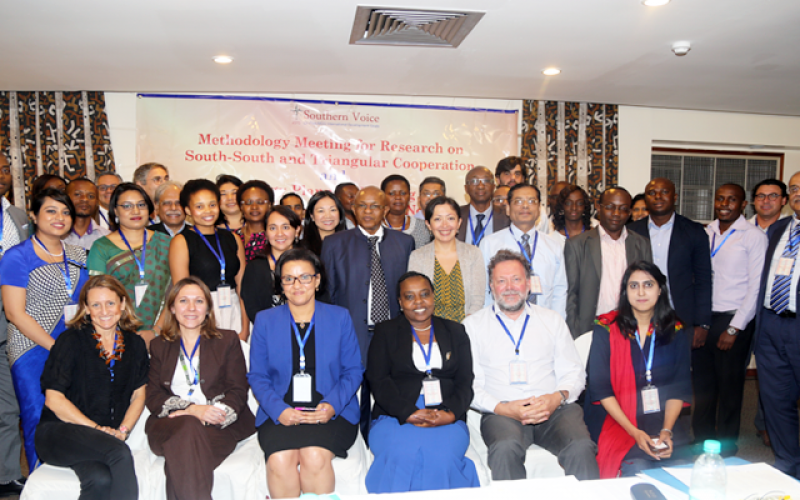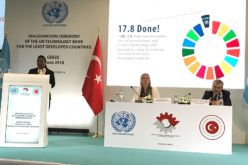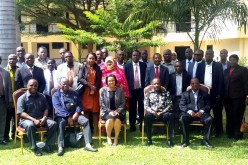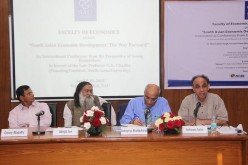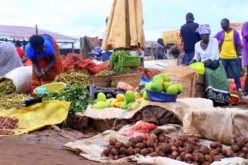Participants List | Programme Schedule | Photo Gallery (Day 1 , Day 2)
Dar es Salaam, 12-14 October 2015 –Two back-to-back meetings of the Southern Voice (SV) network, the “Methodology Meeting for Research on South-South and Triangular Cooperation” and “Strategy Planning Meeting on Future of the Southern Voice Network” have concluded successfully. The meetings were organised by Science, Technology and Innovation Policy Research Organization (STIPRO), Tanzania, a member of SV, in collaboration with two other local network members – Research on Poverty Alleviation (REPOA) and Economic and Social Research Foundation (ESRF). The meetings brought together concerned experts from international development and research communities, who were drawn from SV and beyond. A detailed summary of the Dar meetings is currently being drafted and will be available in the coming days.
Methodology Meeting on South-South and Triangular Cooperation (12-13 October 2015)
The opening was officiated by the Guest of Honour, Eng. Happiness Mgalula, who represented the Executive Secretary of the Tanzania Planning Commission. The panel members were Debapriya Bhattacharya (SV/CPD – Bangladesh) and Bitrina Diyamett (STIPRO – Tanzania).
At the first session on the state of research on South-South Cooperation (SSC) and emerging trends, the definition of SSC was explored along with its different modalities; the resources or actors engaged in the process of SSC; and how to distinguish between the output and outcome of SSC. It was discussed that for operational principles, a newly defined agenda for SSC is needed, building on the 2009 Nairobi document, Paris Principles and Busan Agreement, as well as integrating new issues of the post-2015 agenda raised under the banner of SSC. Speakers were Xiaojun Grace Wang (UNDP) and Matshediso Moilwa (SAIIA – South Africa); the commentators were Mireya Villacis (CEDA – Ecuador) and Adriano Timossi (South Centre – Switzerland). The session was chaired by Samuel Wangwe (REPOA – Tanzania).
The second session reviewed analytical and quantitative techniques used in research on South-South Cooperation (SSC) and Triangular Cooperation (TrC). The session was chaired by Shekhar Shah (NCAER – Delhi); the speakers were Lisa Borgatti (UNCTAD) and Pranay Sinha (University of Birmingham, UK). The commentators were Munshi Sulaiman (BRAC International) and Emmanuel Igbinoba (Kwararafa University). Public access to data for analytical overviews was the key issue addressed in this session and related definitional issues were also clarified.
The third session addressed data challenges for research on SSC, where the speakers were Mehmet Arda (EDAM) and Maam-Suwadu Sakho Jimbira (IPAR – Senegal). The commentators were Doningon Soro (UNDP) and Saadiya Razzaq (SDPI – Pakistan). The session was chaired by Professor Mustafizur Rahman (CPD – Bangladesh). The session explored what type of data is needed for research on SSC, and whether any specific research is needed to improve the data gap. Among other issues, it was noted that trade and investment flows are easily reported but there are pecuniary issues that are not reported; not every aspect of SSC can be quantified, such as policy advocacy; and consequently, means of assessing such aspects must be investigated. It was also concluded that national accountability is an important aspect of data reporting. Political economy of the data situation was also discussed.
The fourth session, which deliberated upon leading issues on TrC, was chaired by Ibrahima Hathie (IPAR – Senegal). The speakers were Meibo Huang (Xiamen University) and Javier Surasky (CEPEI – Bogotá, Colombia); commentators were Pablo Hurtardo (ASIES – Guatemala) and Adedayo Bolaji-Adio (ECDPM). Definitional issues of TrC were discussed. It was concluded that a universal definition of the term needs to be agreed by state and non-state actors, vis-à-vis the definition of the UN which currently exists. Other issues explored were as follows: issues other than financial aspects that are significant; whether the relationship between TrC and SSC is complementary; the power dynamics of TrC. The actors, modalities, process and arrangements of TrC, and its outcomes were also discussed.
The fifth session identified themes that have not been addressed in the existing literature on SSC. The speakers were Saman Kelegama (IPS – Sri Lanka) and Tausi Mbaga Kida (ESRF – Tanzania). Commentators were Karin Fernando (CEPA – Sri Lanka) and Debapriya Bhattacharya (SV/CPD – Bangladesh). The session was chaired by Peter da Costa (Hewlett Foundation).
The fifth session was followed by an open discussion and sum-up conclusion moderated by the Chair of the session.
The outcome of the dialogue will be fed into the future work programme of the Southern Voice network on South-South and Triangular Cooperation.
Strategy Planning Meeting on the future of Southern Voice (13-14 October 2015)
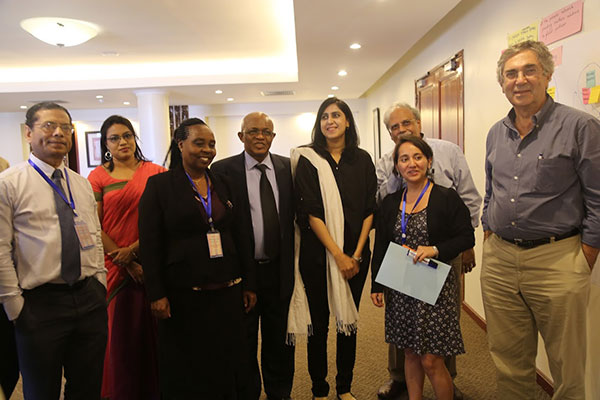 In the opening session, welcome remarks were offered by Debapriya Bhattacharya, Chair, Southern Voice (SV), and Distinguished Fellow, CPD. The session was facilitated by Andrea Ordonez, Research Coordinator, Southern Voice, who made a presentation on the achievements and current activities of the SV network. Selected network members then shared their experiences with SV.
In the opening session, welcome remarks were offered by Debapriya Bhattacharya, Chair, Southern Voice (SV), and Distinguished Fellow, CPD. The session was facilitated by Andrea Ordonez, Research Coordinator, Southern Voice, who made a presentation on the achievements and current activities of the SV network. Selected network members then shared their experiences with SV.
The second session involved brainstorming and group work on the identification of broad objectives of the network, and was facilitated by Karin Fernando (Steering Committee, SV / CEPA – Sri Lanka). The objectives identified for the SV network included the following: to remain consistent with the SDG momentum; to contextualise national wok globally; to network with other regions and re-think the SV network’s own views and approaches; and to help national efforts to follow up and review the progress on SDGs. At the end of the session, the following goals were agreed upon: expanding the network; building institutional capacity within the network; tracing the impact of SV; to formulate a strategic outreach plan; to create evidences on the SDGs.
In the third session, group work was done to identify the factors to achieve the objectives set and the areas covered were: the quality of research; communication and outreach capacity; and global policy positioning. Peter Taylor (IDRC – Canada) facilitated the session. The group work involved force-field analysis (depicting “helping” and “hindering” factors) on how to strengthen the SV network from 2015 to 2020, and how SV can follow the SDGs through research support.
The fourth session explored which focus areas the Southern Voice network should prioritise, and was facilitated by Sarah Lucas (Hewlett Foundation). After the discussion on the different factors identified through the force-field analysis of the previous session, participants sorted the various points into key categories, which could then form a basis for action (ideas for action were explored in the fifth session). For the SV network’s research contribution to the SDGs, five clusters were identified as essential for transformation: an appropriate research agenda; financial and technical resources that need to be accumulated; emphasis on outreach and capacity of the network; linking national issues to regional platforms; and meticulously following through the SDG agenda.
For strengthening the Southern Voice network, 6 clusters were identified: membership and governance; policy and research focus; capacity and knowledge; funding; regional engagement; communications and outreach.
In the fifth session, groups drilled down in areas of their choosing; from the clusters identified in the fourth session, six top priority areas for action were identified. Participants self-selected into the five groups and made recommendations about priority actions in each. At the end of the session, closing remarks were offered by Debapriya Bhattacharya.
The actions identified in the strategy planning meeting will be placed before the Steering Committee of Southern Voice for future guidance
4,141 total views, 2 views today


